Travelling with Pets in India: Train and Car Journey Safety
1. Introduction People in India are choosing to travel with their pets. In the past few years, pet travel has become very popular across the …
1. Introduction People in India are choosing to travel with their pets. In the past few years, pet travel has become very popular across the …

Introduction Did you notice reduced platelets in your dog’s CBP (complete blood picture)? Platelets are needed for the clotting mechanism. Platelets also help to keep ...
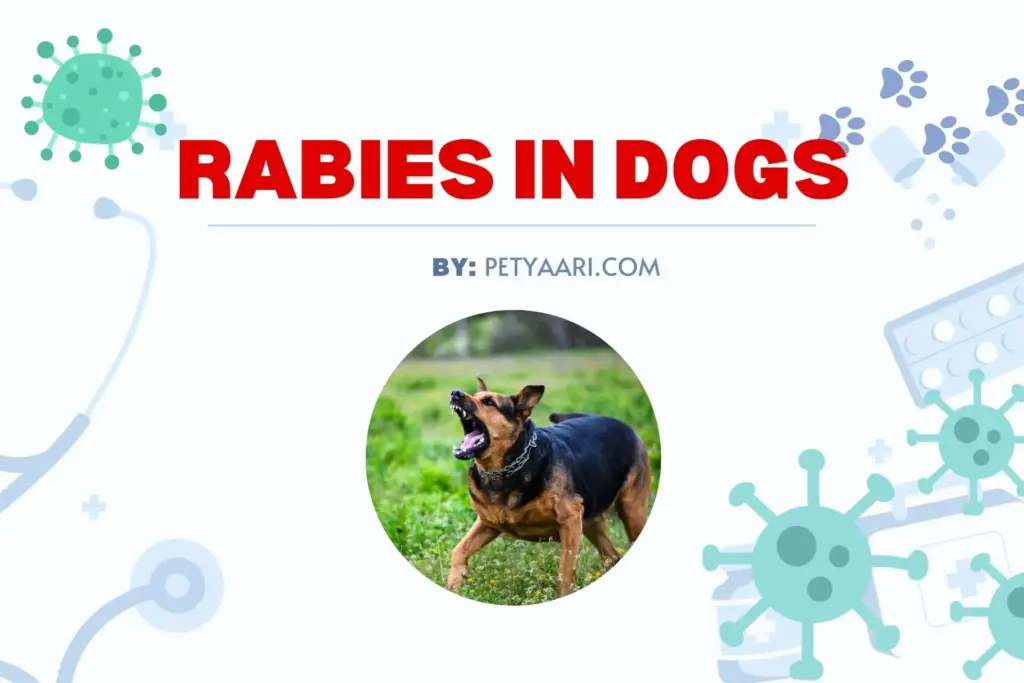
Introduction Rabies is a deadly viral disease that poses a significant threat to dogs and humans. In India, where stray dogs are a primary source ...
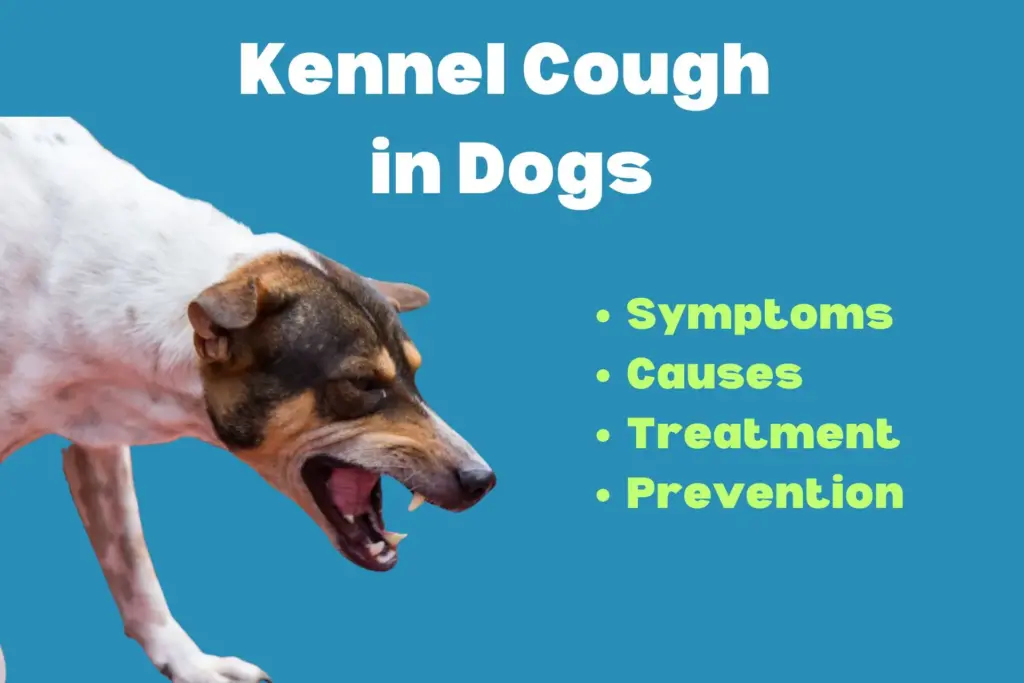
Hey there, dog lovers in Hyderabad! If you’ve ever heard your furry friend coughing like they swallowed a squeaky toy, you might be dealing with ...
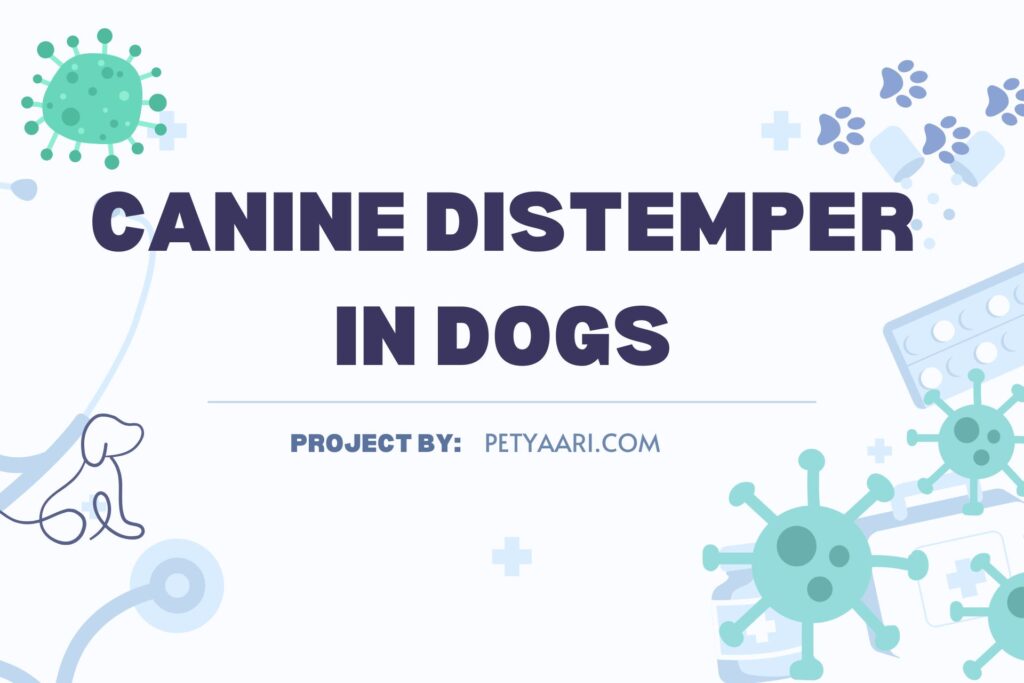
Canine distemper is a very contagious virus. It affects dogs' respiratory, gastrointestinal, and nervous systems. This disease can often be fatal. It spreads through airborne droplets or contact with infected animals. Symptoms include fever, nasal discharge, coughing, vomiting, and neurological issues like seizures. Puppies and unvaccinated dogs are most vulnerable, with mortality rates reaching 80% in untreated cases. While no cure exists, prompt veterinary care including IV fluids, antibiotics, and anticonvulsants can improve survival chances. Prevention through timely vaccination (starting at 6-8 weeks) is crucial. At Petyaari Pet Clinic, we provide full distemper care. This includes diagnosis and treatment to keep pets in Hyderabad safe. If your dog shows symptoms, seek immediate veterinary attention.
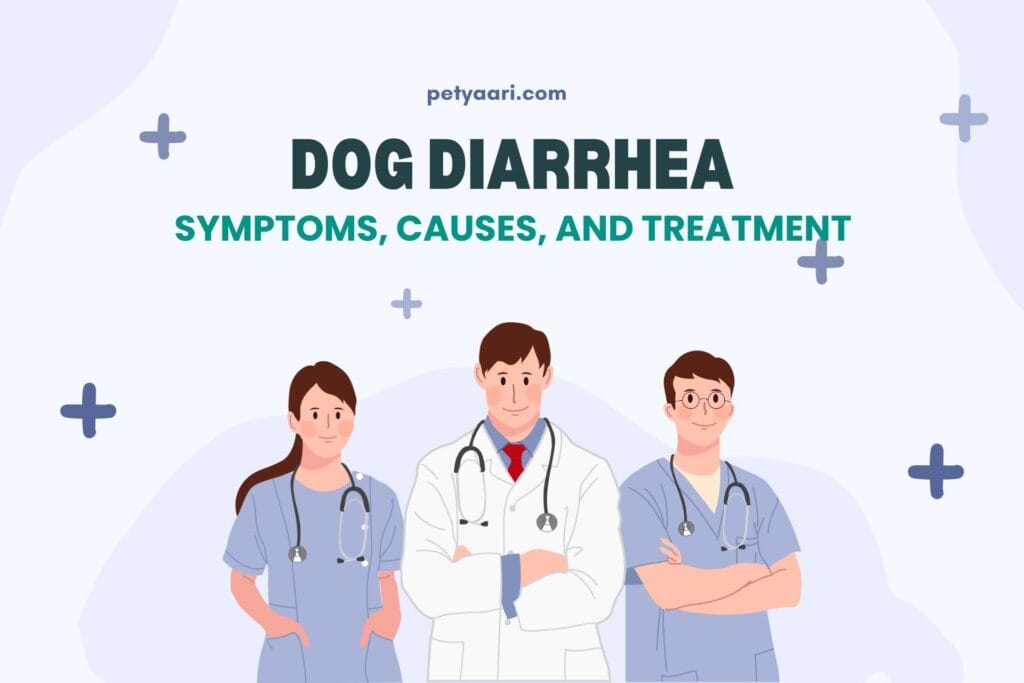
Diarrhea in dogs can have many causes. It may be due to dietary changes, infections, parasites, or underlying health issues, and the condition ranges from mild to life-threatening. Watch for symptoms such as loose stools, vomiting, lethargy, or blood in the feces, which may indicate severe conditions like parvovirus, tick fever or poisoning. While mild cases can often be managed at home with fasting, bland diets (such as rice and chicken), and probiotics. Severe or persistent diarrhea (especially in puppies) requires immediate veterinary care, including diagnostics, fluids, and medications like metronidazole. Breeds like Yorkies and German Shepherds are more prone to digestive issues. Prevent Diarrhea by gradual diet changes, regular deworming, and avoiding toxins. Always consult Petyaari Pet Clinic if symptoms worsen or last beyond 48 hours to ensure your dog’s swift recovery.
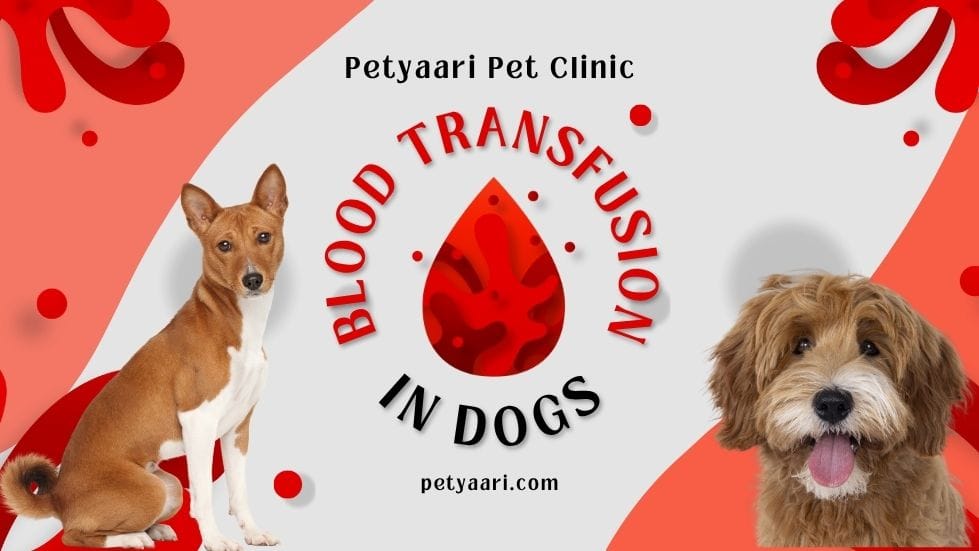
A blood transfusion can be a vital lifeline for your dog in critical situations like tick fever, traumatic blood loss, or autoimmune diseases. At Petyaari Pet Clinic, we specialise in emergency canine transfusions. We use advanced blood typing and crossmatching to ensure safe and compatible donations from our screened canine blood bank. Dogs have over 12 blood types, unlike humans. This makes precise matching crucial to avoid dangerous reactions. If your dog has tick-borne illnesses like Ehrlichia or Babesia, is recovering from surgery, or battling IMHA, our transfusion service is here to help. We combine cutting-edge veterinary haematology with compassionate care. Be alert for signs like pale gums, weakness, or rapid breathing. Acting quickly can make a big difference. With the right treatment, most dogs can recover fully. In emergencies, every drop of blood truly counts. Trust Petyaari to provide the expert care your pet needs when it matters most.
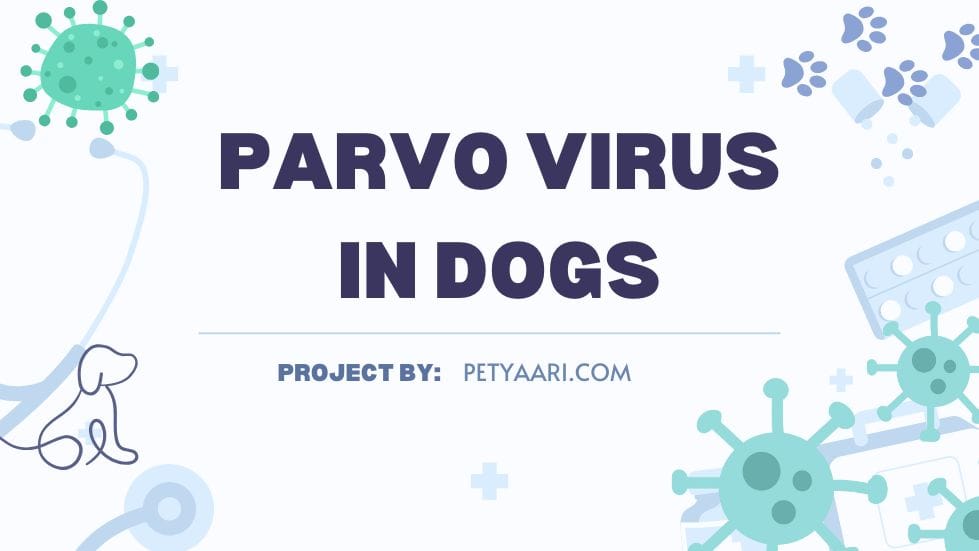
Canine Parvovirus (CPV) is a highly contagious and life-threatening disease that primarily attacks unvaccinated puppies and dogs, causing severe vomiting, bloody diarrhoea, and dehydration. At Petyaari Pet Clinic, we emphasise that prevention through complete vaccination (starting at 6-8 weeks) and strict hygiene is crucial, as the virus can survive in environments for months. Early symptoms like lethargy and loss of appetite demand urgent veterinary care; delay reduces survival chances from 90% to below 20%. Treatment includes IV fluids, antibiotics, and advanced therapies like monoclonal antibodies, with costs ranging from ₹7,000 to ₹25,000. Recovery takes weeks, requiring careful nutritional support. Trust Petyaari for expert CPV care, from diagnostics to emergency treatment. Protect your pet: vaccinate, disinfect, and act fast at the first sign of illness.
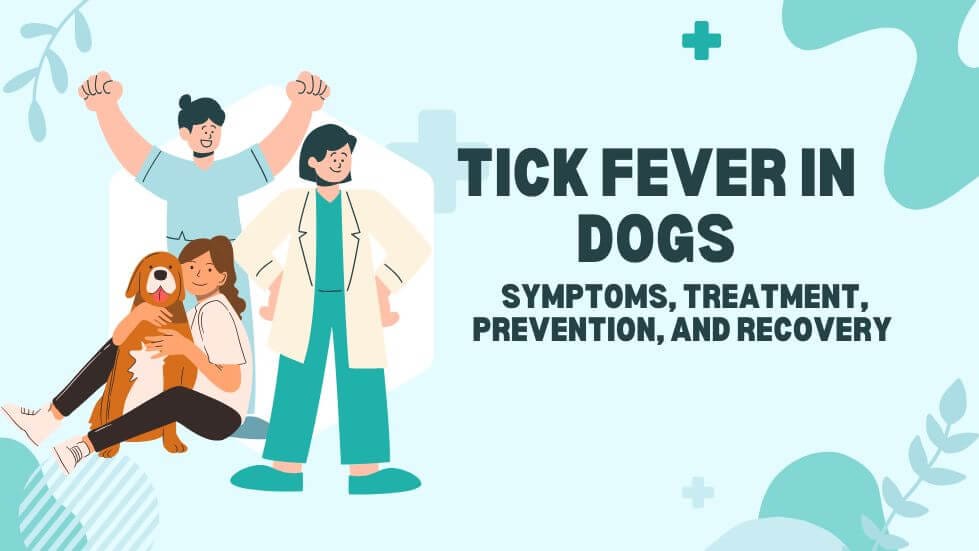
Tick fever in dogs, caused by pathogens such as Ehrlichia, Babesia, and Anaplasma, is a serious health concern, particularly in tick-prone areas like India during the warm or monsoon seasons. Transmitted through tick bites, it leads to symptoms such as fever, lethargy, loss of appetite, joint pain, bleeding disorders, and jaundice. Without prompt treatment, it can cause severe complications like anaemia, organ damage, or even death. Diagnosis at Petyaari Pet Clinic involves physical exams, blood tests (CBC, LFTs, KFTs), and advanced PCR tests to identify specific pathogens. Treatment includes antibiotics (e.g., doxycycline), antiprotozoal medications, IV fluids, blood transfusions, and hospitalisation for severe cases. Recovery typically takes 2–6 weeks, with early intervention improving outcomes. Prevention is key: Use vet-recommended tick preventatives (topical treatments, oral medications, or collars). Conduct regular tick checks, especially after outdoor activities, focusing on ears, paws, and groin. Maintain a tick-free environment by trimming grass and avoiding high-risk areas. Tick fever is not contagious between dogs or to humans; only ticks transmit it. Home remedies are insufficient; veterinary care is essential. PCR tests for accurate diagnosis are available at Petyaari Pet Clinic. With proper treatment, tick fever is 100% curable. Vigilance, prevention, and timely veterinary care from Petyaari Pet Clinic are crucial to safeguarding dogs from tick fever. Schedule an appointment for tailored prevention or treatment plans to ensure your pet’s health.
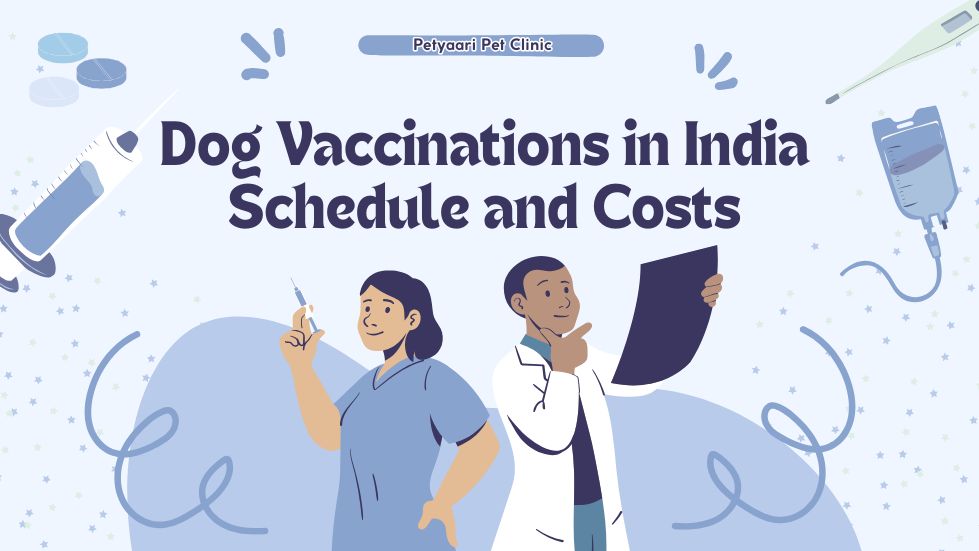
Vaccinating your dog is crucial for protecting them against deadly diseases such as rabies, parvovirus, and distemper, while also safeguarding public health, especially in India, which accounts for 60% of global rabies deaths. Puppies should begin vaccinations at 6-8 weeks with core vaccines (7-in-1 or 9-in-1 and rabies), followed by boosters at 12-14 weeks and annually. The 9-in-1 vaccine (₹700–₹1,000) covers additional strains such as leptospirosis, while rabies vaccines (₹350/dose) are legally mandatory. Non-core vaccines (e.g., kennel cough and canine coronavirus) are recommended based on lifestyle risks. The costs for full puppy vaccination range from ₹2,500 to ₹4,500. Always deworm before vaccinating and monitor for mild side effects. Stay compliant, track schedules, and consult a vet at Petyaari Pet Clinic. Vaccinate today to ensure a long, healthy life for your pet and the community.